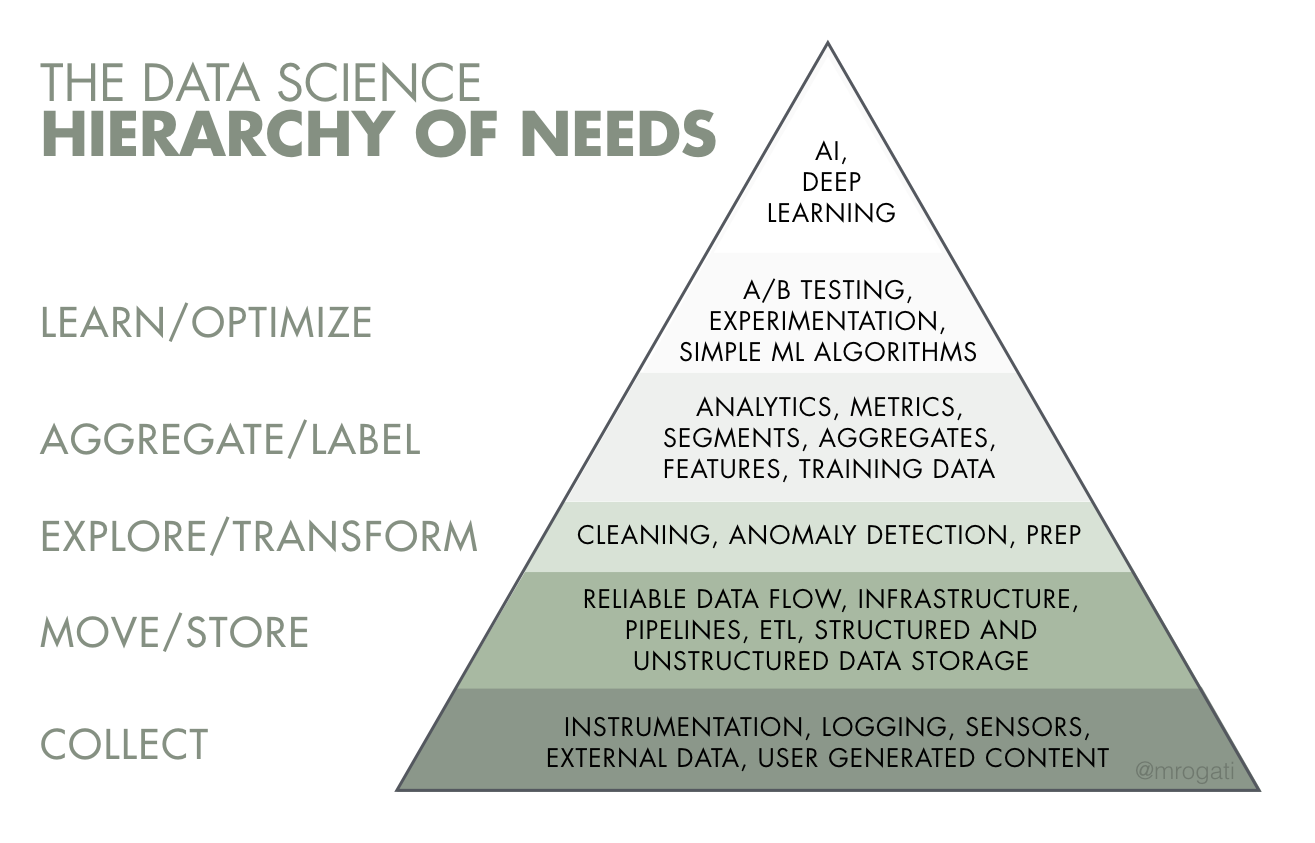People devise more than 2.5 quintillion data bytes every day. Every now and then data volume only increases. Imagine that every person creates 1.7 MB of data every second in 2020.
However, data interpretation is the final step in transforming raw information into analytical boards. Regarding this, data is received, stored, processed, requested, and so on. Data engineers are data platform architects, who work to maintain order in this system.
This article will discuss the data engineer job description, what he/she needs to be able to make good money, and what is important to know at the career start.
“Data engineering is concerned with the production readiness of that data and all that comes with it: formats, scaling, resilience, security, and more.”
Ian Buss, solutions architect at Cloudera
What does a Data Engineer stand for
The occupation of data engineer constitutes a mixture of both data analyst and scientist. Data engineer facilitates the process of working with data for teams.
He/she is in charge of extracting, transforming, loading, processing data and builds the fastest path for information to data scientists – so that colleagues are not distracted from their main tasks. Therefore, teams keeping in touch with data engineers work faster and more efficiently than those where there is a lack of labor division.
Role
The main challenge for engineers is to supply reliable data infrastructure. If we have a look at the AI hierarchy of needs, data engineering takes the first 2-3 steps: collecting, moving and storing, preparing data.

Source: hackernoon.com
Any dev phase requires a data engineer who deals with bugs arising along with the data flow. Prior a data engineer worked to a great extent with warehouses, using SQL databases to design cutting-edge data warehouses. Today, the concept has remained the same, but the warehouses have become more complex. These experts work with various storage types (NoSQL, SQL), Big Data tools (Hadoop, Kafka) and integration tools to combine sources or other databases.
Maintaining the pipeline is likely to be the critical task of the engineer. That is, organizing data integration tools that connect sources to a data warehouse.
How to know the appropriate time to hire?
There are 3 scenarios for a company when it’s time to recruit a data engineer.
- Team growth. When a company needs a technician to maintain the architecture, this is the right time to hire such an engineer.
- Working with Big Data. Today, working with Big Data, managing data lakes and building extensive data integration pipelines for NoSQL warehouses is no longer a trend, but an industrial necessity.
- Customizable data streams needed. The role of the data engineer will be very useful in this case. A company can use various types of storage and processes for several types of data. This includes a large technology infrastructure that only a heterogeneous data engineer can create and manage.
Commitments
The duties of data engineers from different departments differ little. Among the main responsibilities you will find:
- develop and maintain the entire infrastructure of the data platform
- control data flows
- make recommendations for improving data quality
- prepare data for data analysts and data scientists
- handle errors
- efficiently store data.
Expertise
The data engineer skills can be divided into 3 groups.
| Engineering | Data Science | Databases |
| Software architecture background | Data science concepts | SQL/noSQL |
| Java | Data analysis | Amazon Redshift |
| Scala | ETL tools | Panoply |
| GoLang | BI tools | Oracle |
| Python | Hadoop, Kafka | Talend |
| C/C# | ML frameworks and libraries: Tensorflow, Spark, PyTorch, mlpack | Informatica |
| R lang | Apache Hive |
In different companies, the level of responsibility may vary depending on tasks, projects, work experience and team size. In some companies, the level of duty separation may be even more detailed.
First steps to become a data engineer
First of all, data engineering refers to computer science. More specifically, you must understand efficient algorithms and data structures. Second, because data engineers work with data, an understanding of how databases work and the underlying structures are essential. Check useful topic-related links:
1. Algorithms and data structures
Free courses:
- Easy to Advanced Data Structures by Udemy
- Algorithm, Part 1 by Coursera
- Algorithm, Part 2 by Coursera
Book:
- Introduction to Algorithms by Thomas H. Cormen
Video:
2. SQL
Free courses:
3. Python and Java / Scala
Books:
- Fluent Python: Clear, Concise, and Effective Programming by Luciano Ramalho
- Programming in Scala: Updated for Scala 2.12 by Martin Odersky
4. Big data tools
Free sources:
- Spark: The Definitive Guide: Big Data Processing Made Simple by Bill Chambers
- The Log: What every software engineer should know about real-time data’s unifying abstraction by Jay Kreps
- Free Hadoop Tutorial Series
5. Cloud platforms
Among the most demanded cloud platforms are Amazon Web Services. Google cloud platform is ranked second and closes the top three leaders Microsoft Azure. Amazon EC2, AWS Lambda, Amazon S3, DynamoDB will help you to stand out too.
6. Distributed systems
Books:
- Distributed Systems by Maarten van Steen
- Designing Data-Intensive Applications: The Big Ideas Behind Reliable, Scalable, and Maintainable Systems by Martin Kleppmann
Video:
7. Data pipelines
One of the main tasks of a data engineer is drawing up a pipeline date, that is, the process of delivering data from one place to another.
Additional sources
- A Beginner’s Guide to Data Engineering — Part I, II, III
- The Rise of the Data Engineer
- The Downfall of the Data Engineer
- Functional Data Engineering
- On Ways To Agree, Part 1: DistSys Vocabulary
- On Ways To Agree, Part 2: Path to Atomic Broadcast





